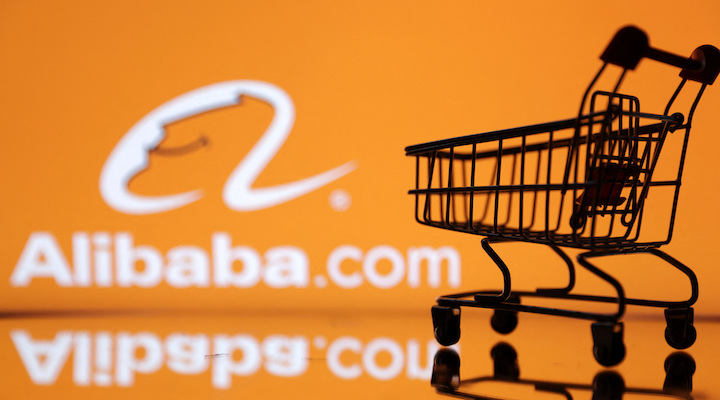China’s Alibaba Group Holding reported its strongest quarterly revenue growth in almost two years on Thursday, boosted by a mid-year shopping festival that attracted bargain hunting consumers amid a sober economic environment.
The Chinese e-commerce giant posted first-quarter revenue of US$32.29 billion, up 14 per cent from the prior-year quarter which was hit by strict pandemic lockdowns. The figure beat analysts’ estimates of $31.1 billion, according to Refinitiv data.
The company’s US-listed shares rose nearly 4 per cent in pre-market trading.
The latest revenue figure represents an improvement from flat to 3 per cent growth in the past four quarters.
However, fears have grown about China’s economy, which has faltered after an initially brisk recovery from the lockdowns. On Wednesday, China reported it tipped into deflation in July at the consumer price level – a development expected to further weigh on shoppers’ will to spend.
Revenue in the first quarter to end-June was helped by a recovery in consumer purchases on Alibaba’s Taobao and Tmall marketplaces, boosted in part by the 618 shopping festival, China’s second-largest online shopping event, in June.
Customer management revenue, which tracks how much merchants spend on Alibaba, rose 10 per cent to $11 billion, thanks to an increase in merchants’ willingness to invest in advertising and higher sales during the festival.
Sales at Cloud Intelligence Group, its main growth driver outside of e-commerce, reported the smallest revenue growth among the group’s six business units of 4 per cent, but the division’s underlying profit more than doubled as its workplace collaboration tool, Dingtalk, helped to reduce costs.
This was the last earnings announcement under Alibaba CEO and Chairman Daniel Zhang, who will step down from the roles in September to focus on leading its cloud division.
The CEO role will be handed over to Eddie Yongming Wu, chairman of Alibaba’s Taobao and Tmall Group, while Executive Vice Chairman Joseph Tsai will take over as chairman.
Regulatory concern has eased for China’s tech giants, including Alibaba, this year, with Chinese authorities keen to boost private sector confidence. But China’s sputtering economy and mounting competitive pressure from smaller rivals such as PDD Holdings and Douyin, the Chinese version of TikTok, pose major challenges to Alibaba.
This was the first set of quarterly results for the $241 billion market-value behemoth since it split its business into six units, which many experts said could ease scrutiny over the tech giant.
- Reporting by Yuvraj Malik in Bengaluru; Editing by Shounak Dasgupta and Sharon Singleton, of Reuters.






